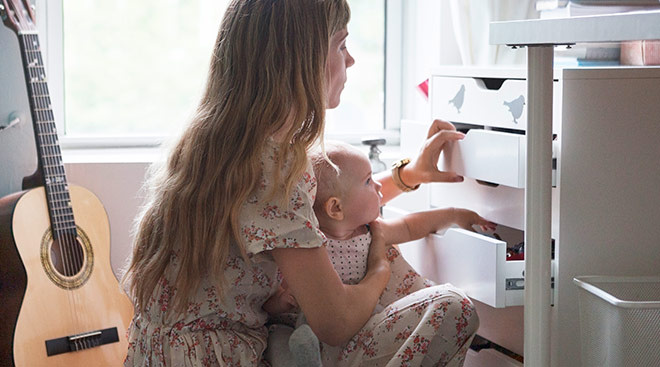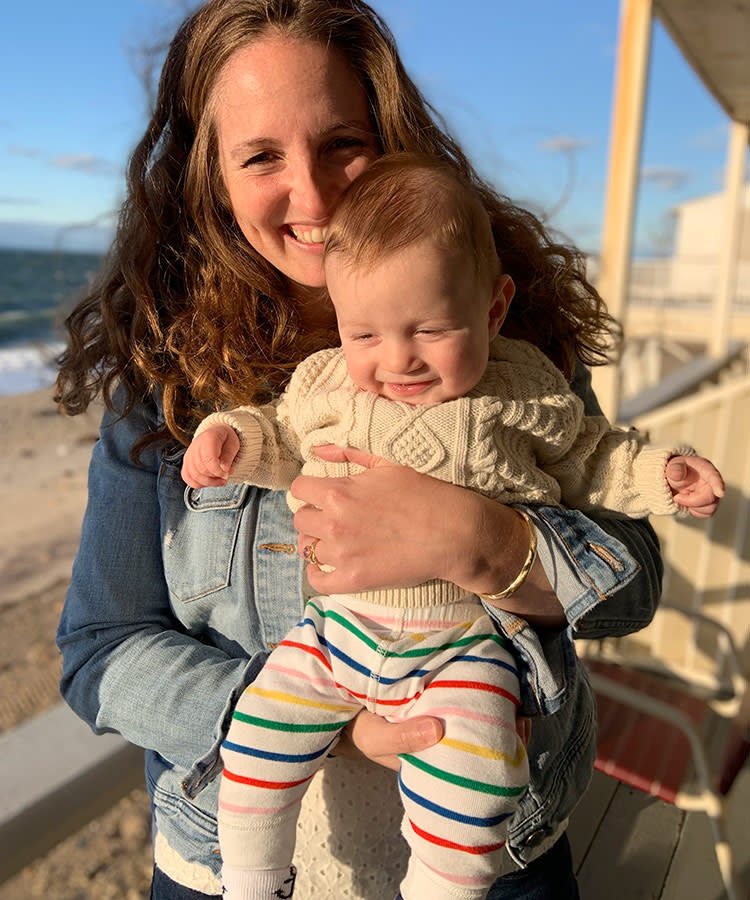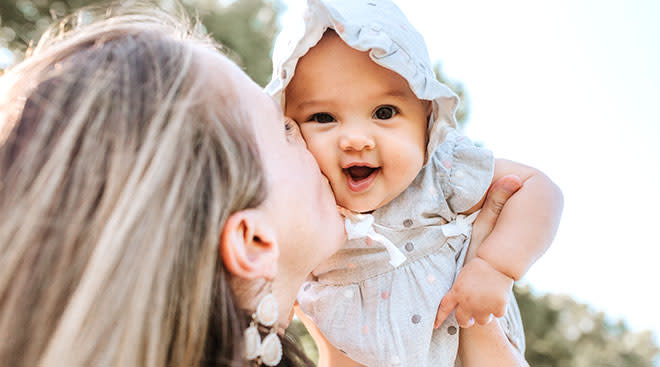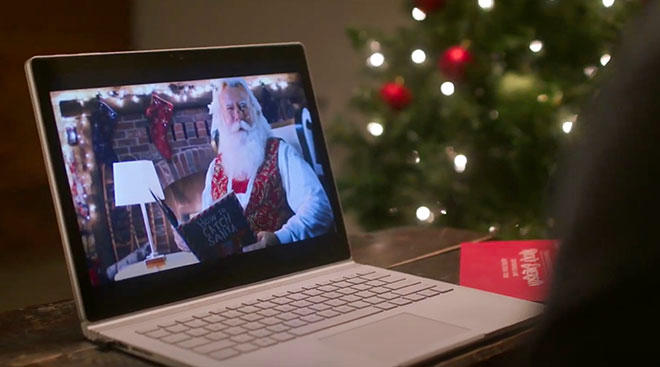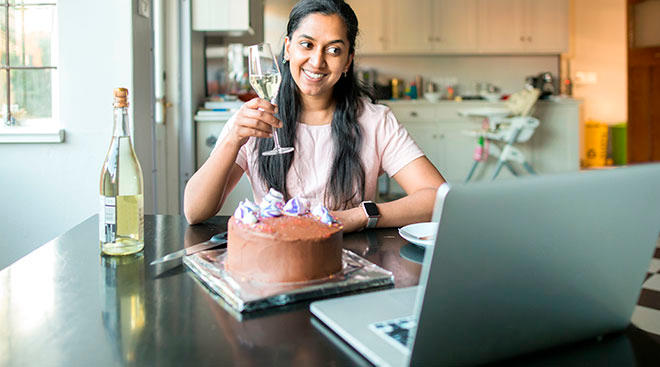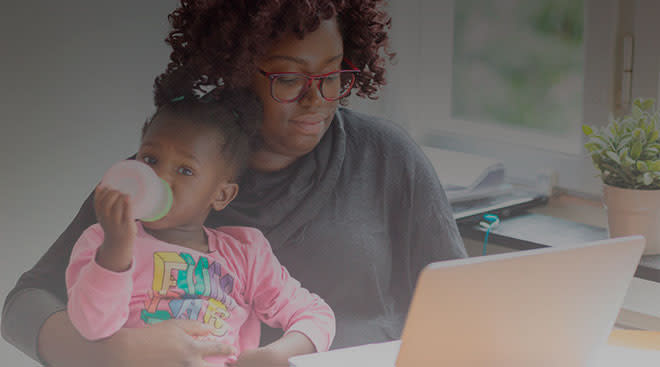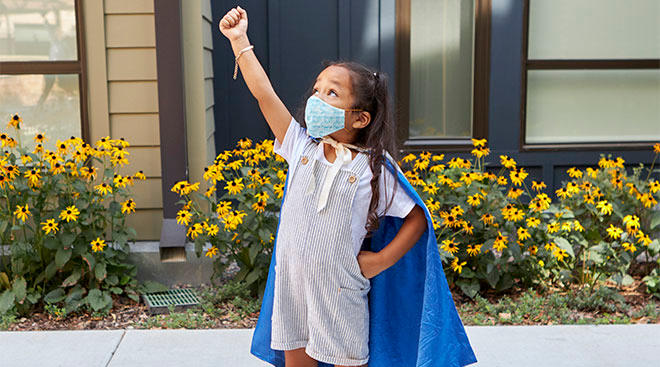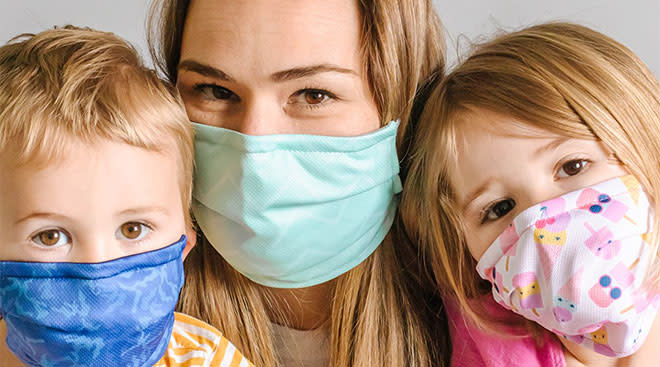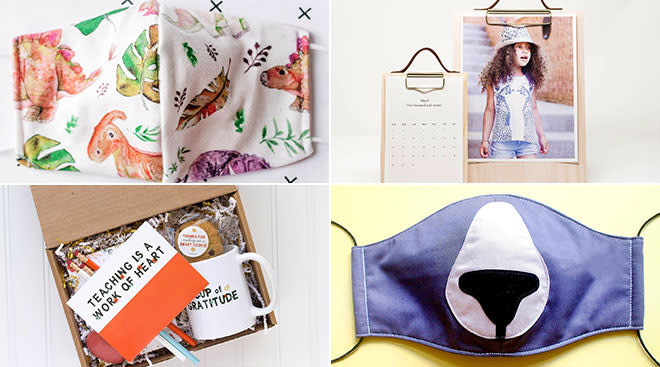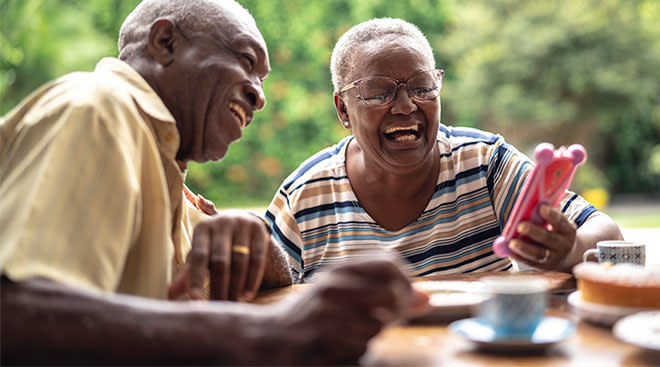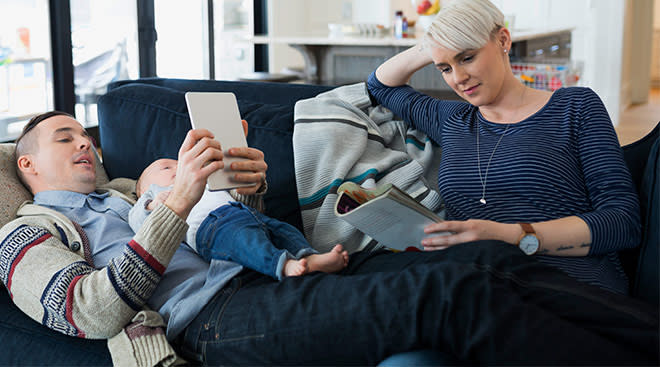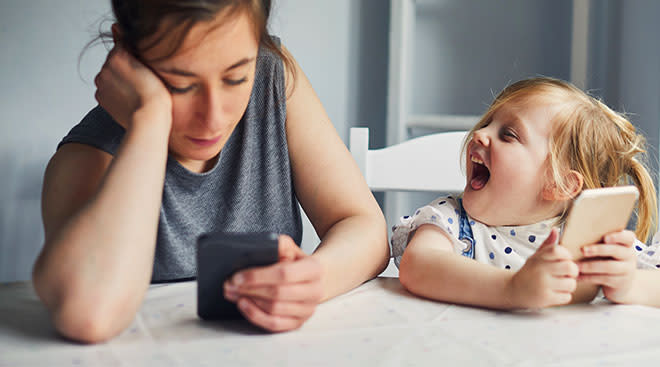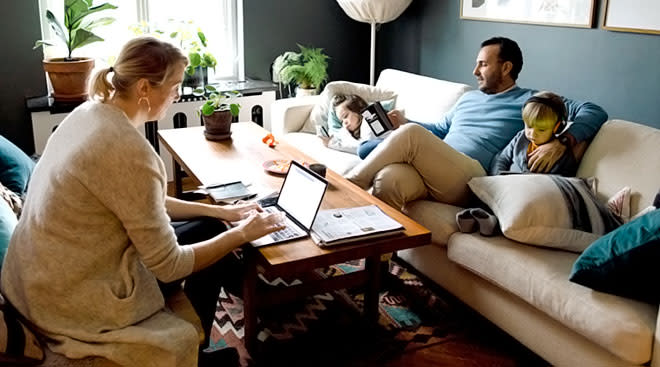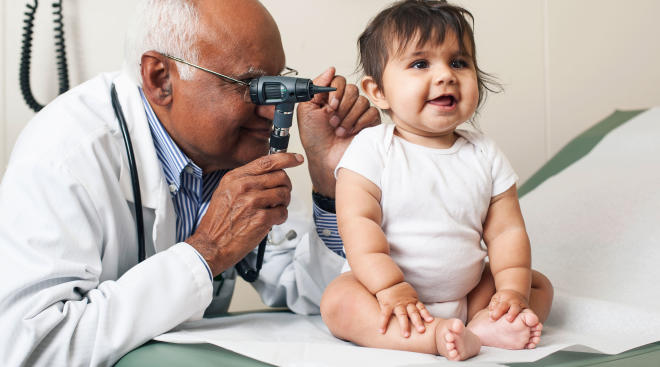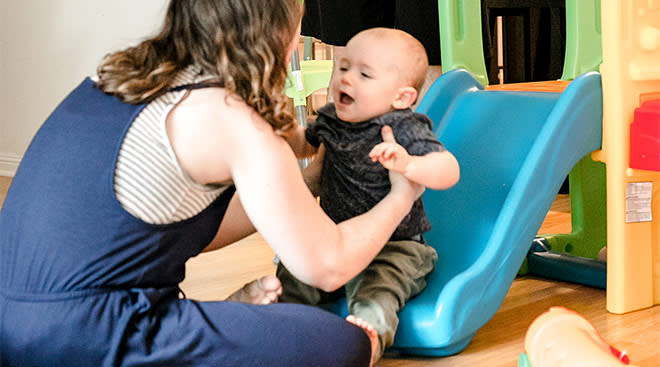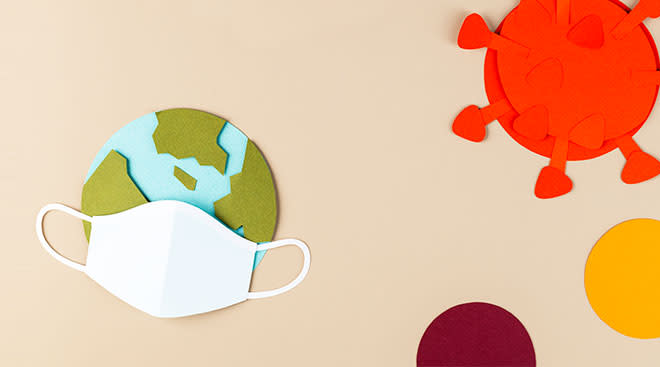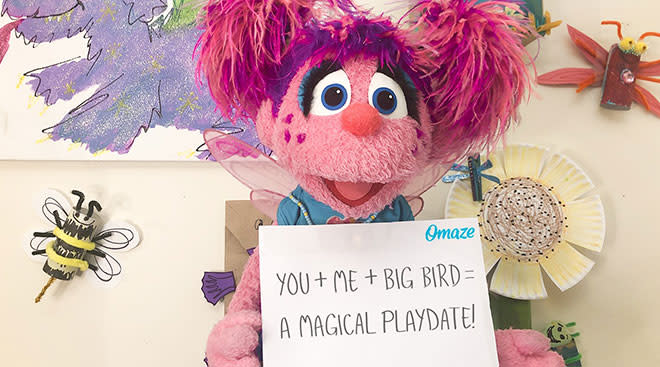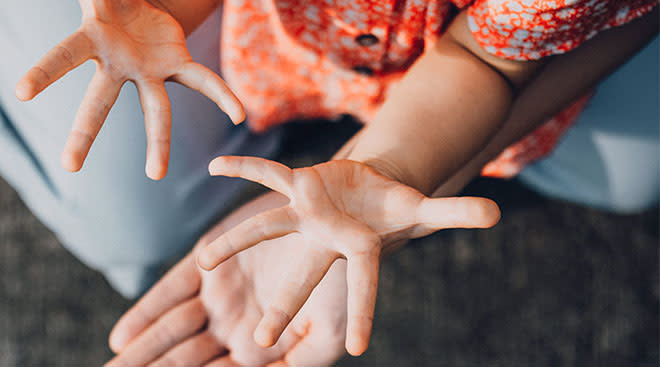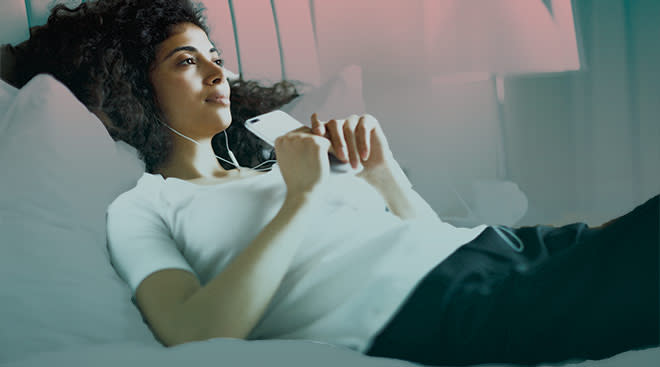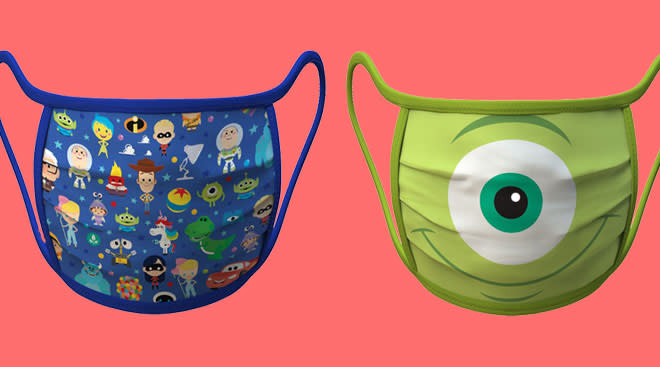How Having OCD Mentally Prepared This Mom for COVID-19
In 2018, when I was pregnant with my second child, I emailed a psychologist on Christmas Eve. While my husband, daughter, parents, sister and extended family were downstairs eating, enjoying the revelry of the holiday, I was camped out upstairs in my childhood room after washing my hands for the dozenth time.
My aunt and cousin had told us, upon arriving for the party that night, the reason my uncle didn’t come was because he had come down with a stomach virus. Hearing that news, my brain responded like this: If my uncle is sick, then my aunt and cousin likely are sick, or soon to be. If I touch them, or my toddler daughter hugs them, or if they brush up against my dress, or if we both touch the same serving spoon as we eat linguine and clams, then I too will get sick. And I am pregnant, and it’s Christmas, and what if, what if, what if.
Minutes after they arrived, I went upstairs because my cousin had hugged me and I felt contaminated, like I was crawling with stomach virus germs. I pondered whether I could withstand the anxiety of keeping the dress on, or if I should take it off and wash it. It was expensive and made from wool, and it would likely shrink and be ruined. Plus people might notice the outfit change. How many outfits had I ruined over the years? How many changes of clothes? I lay in bed thinking about it. I cried quietly as I listened to my loved one’s voices downstairs.
My husband looked for me a few times that night, and so did my mom. I don’t remember what excuse I used, maybe that I had a headache or I was just getting something from upstairs. I didn’t tell them I was in the middle of a swirl. I didn’t tell my husband I had to keep finding hand cream to lather my hands with after washing again and again. That I had intrusive thought after thought running through my head like a rainstorm: Will I get sick? Will I? Will I? Will everything be okay? Instead, I Googled the stomach virus, as if I needed to find something new about it. I posted on a mom Facebook group about getting the stomach virus when pregnant. But after wasting close to an hour, I changed my search. I Googled psychologists who treat obsessive-compulsive disorder (OCD).
I first developed OCD in my early 20s. I was in graduate school at Columbia University studying education at Teachers College when it really revved up, making my happy, full life nearly unmanageable. I remember dropping an umbrella on a crosstown bus and then getting off at my stop and throwing the umbrella directly in the garbage. The city streets were filthy, my OCD said—dog poop, BandAids, blood—and people walked on the streets and their shoes naturally touched the bus floor, so the floor was also filthy, and since my umbrella fell on it, it was now contaminated. Throwing it out was the only option, or so I thought at that time.
During this season of life, if I dropped a pen on my dorm room floor I would often leave it there for weeks, not feeling like picking it up and then washing my hands however many times it would take to feel safe again. When I was student teaching, I would notice every cough, sniffle and side comment about strep or bronchitis. I didn’t want to sit on the floor with my students. I was often rushing to class because I was stuck washing my hands, my clothes or my room.
Despite this, above the fray of what had become quite a living hell, I enjoyed my life. I laughed. I learned a ton. I really am not sure how. I was still with my college sweetheart, who is now my husband. I made wonderful friends, one who is my absolute best friend a decade later. But I couldn’t touch my own floor. What a prison. I sought help months into graduate school, and I improved a lot. I cracked open the prison walls. I walked through.
Now, nearly a decade later, I was stuck again. I emailed a woman who taught at University of Pennsylvania and specialized in OCD. I lay in bed and prayed to get out of this trap—one I didn’t ask for, but one I knew I perpetuated with my compulsions. That’s the heinous puzzle of OCD: You feel anxiety about a thought: What if I get the stomach virus from my cousin? And then you do a compulsion, like washing your hands, to lower your anxiety and try, defeatingly, to eliminate the thought. The problem is the more you engage in compulsions, the more your brain is afraid, and the cycle starts again and again and again. The psychologist wrote back to me a few days later. She was taking new patients and would be happy to help.
I spent the next several months of my pregnancy in exposure response prevention (ERP) treatment, the gold-standard for OCD. At the first appointment, she surveyed me, running through all my obsessions and accompanying compulsions. We then ranked them from what would be the easiest to tackle and what would be the hardest. The goal of ERP, which shows great results if you can get yourself to do it, is to purposely expose yourself to your fears and then learn how to prevent compulsions—to learn how to sit with your anxiety and not do anything at all except let it be. It’s surprisingly simple in technique and incredibly, achingly hard in practice.
My worries mostly focused on myself and my family. Keeping us safe: from getting sick, from suffering. I’d think to myself, isn’t that what all parents try to do? Protect their children? I was tortured by it, though. During the winter when illness abounded, and especially now being pregnant. I had a running ticker in my brain: What if we go to the market and get the flu? What if it impacts the pregnancy and the baby gets sick from it and dies? That person just coughed a lot. Oh God, now I touched the door that she touched. I should wash my hands and wear gloves next time. It’s exhausting living like this, while also trying to parent.
With my therapist’s help and some excellent books and podcasts, I began to see the light. I learned that OCD is made up of thoughts our brains come up with, and these thoughts can be exceptionally and creatively terrifying. But it isn’t about the content of these thoughts at all—they’re besides the point. (A strange concept to learn after an entire life of closely listening to my thoughts.) OCD is about an intolerance of uncertainty, about stressing over the “what ifs.” So the goal of treatment wasn’t just to help me stop avoiding situations that scare me (see: Christmas Eve) or stop obsessively washing things or even eliminate my anxiety. It was about helping me learn to live with uncertainty.
That was almost exactly a year ago. Now, our country and the world is in the midst of a global pandemic. What a test for someone recovering from OCD. I watch as our entire world is gripped in fear and grief. The news headlines read like the inside of a nightmare of my former mind: “Stay At Least 6 Feet Away From Others.” “There Is No More Hand Sanitizer: Here’s How to Make Your Own.” “MTA Bleaches Subways, Plans to Keep It Up Every 3 Days.” “Wear Masks and Gloves While Outside.” Watching the COVID-19 story unfold has been surreal and painful, but it has also let me see how far I have come and how the skills I learned treating my OCD are helping in a situation I never could have foreseen.
My husband is an internal medicine physician at our local hospital, and he is on the frontlines in our city. My sister is a physician assistant and her husband is an oral surgeon. They both work in large hospital systems on Long Island and have now been moved from their respective units to treat COVID patients. My family are, like all of us, at risk of getting sick, maybe even more so because of their jobs.
And yet, rather than find myself lost in a swirl of anxiety, I am present. I am here and that is what I settle into. I’m able to say to myself: This is very scary, but I accept the uncertainty. I accept what is happening. I certainly don’t like it (nobody does) and I’m afraid. I also accept that. I’m not going to fight my thoughts. I will not obsess over whether my hands are clean enough or whether my husband is bringing home the virus from the hospital each day. I accept the uncertainty of the situation. I don’t know how all this is going to turn out. A year ago, that thought alone would have sent me into a tailspin. This time I know how to handle it differently.
It’s so incredibly uncomfortable to live in this space of not knowing. I know it intimately. But you can do it, we can persist. I can no longer bear to spend my life living in the “what ifs.” I will certainly be anxious at times, but I will handle that too. Instead of obsessing, I’m going to sit and read with my kids, let their little bodies sink into me, feel their breathing and just be.
Nicole Falcone is a mother of two, writer and founder of a storytelling company, Gather&Create. She has been published in Runner’s World, Parent&Child, The Johns Hopkins Medical Letter: Health After 50, RemedyMD and ScaryMommy, and just self-published her first collection of poetry on motherhood, Sitting Together By The River in the Sunshine. You can hear more about her journey parenting with OCD on the podcast The OCD Stories.
Please note: The Bump and the materials and information it contains are not intended to, and do not constitute, medical or other health advice or diagnosis and should not be used as such. You should always consult with a qualified physician or health professional about your specific circumstances.
Navigate forward to interact with the calendar and select a date. Press the question mark key to get the keyboard shortcuts for changing dates.
































